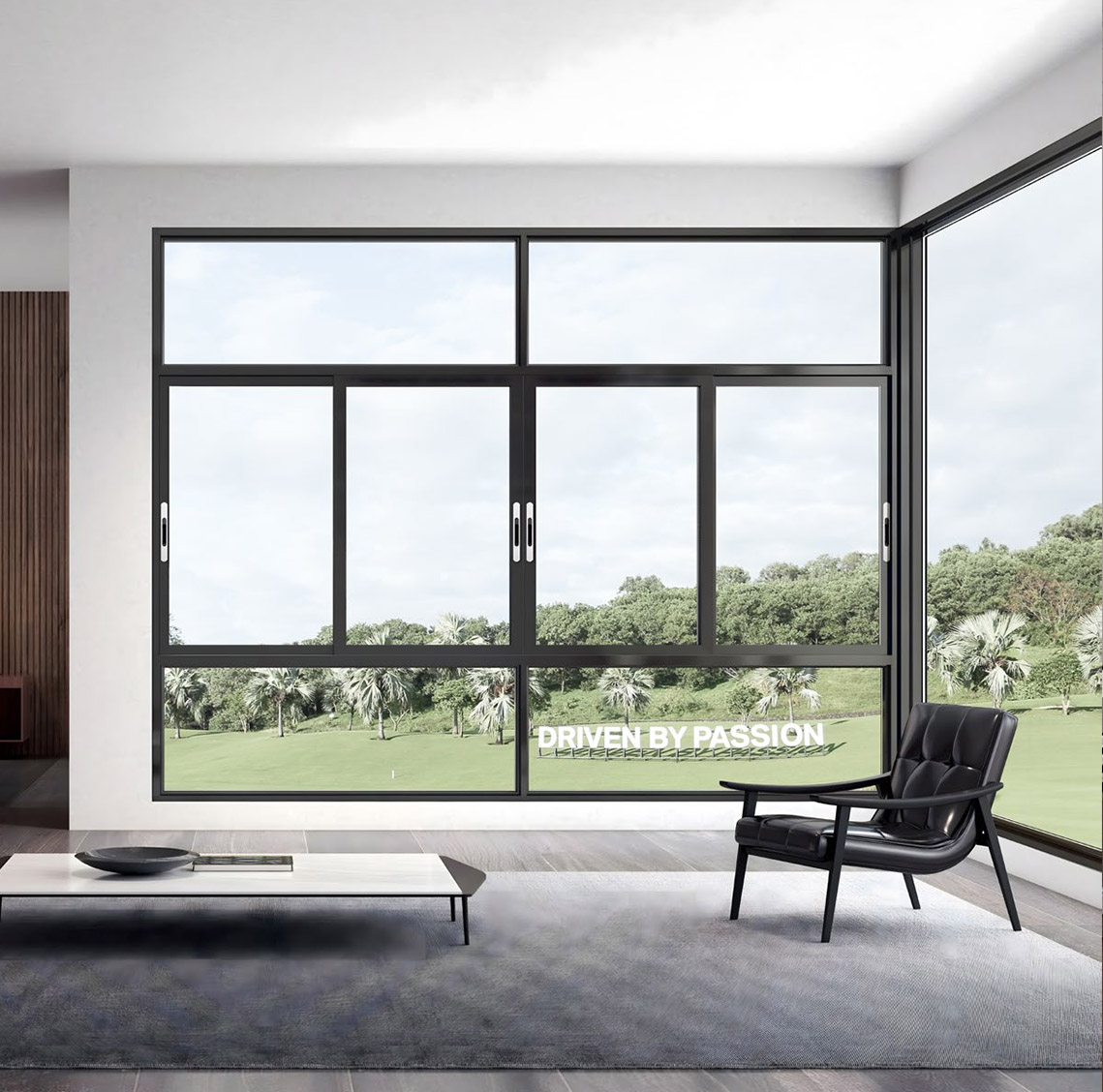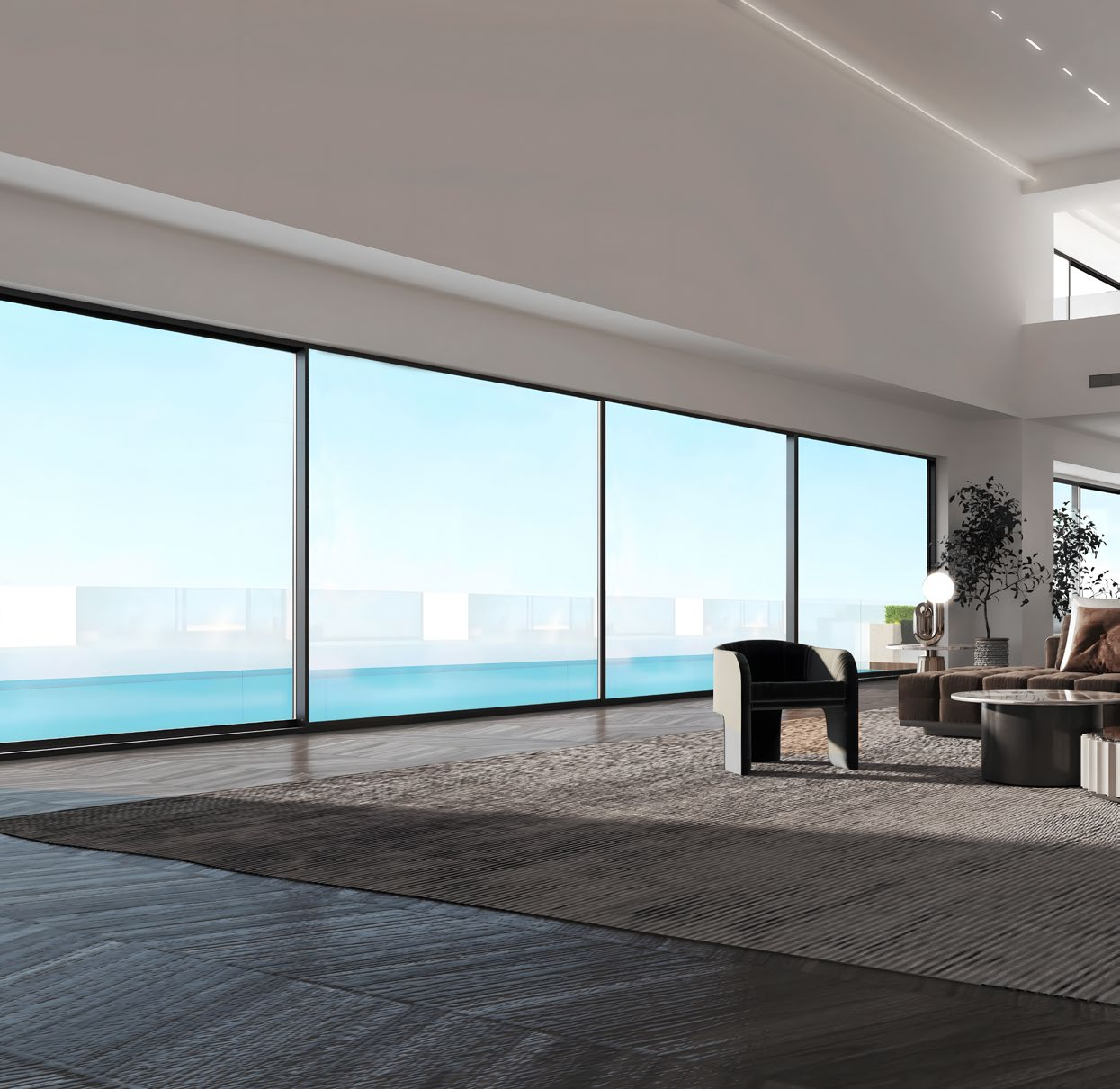8 Critical Parameters to Avoid Scams When Replacing Custom Windows & Doors

Are you tired of being confused by vague sales pitches when replacing your home’s windows or doors? Phrases like “high-quality frames” or “good insulation” mean nothing without hard numbers—especially if you live in areas with extreme weather, like Florida’s hurricanes or Minnesota’s frigid winters. To help you make an informed choice , we’re breaking down 8 non-negotiable parameters to check, plus real-world scenarios and answers to common questions.
1. Profile Width: Don’t Settle for “Thick”—Ask for Millimeters
Many contractors will say, “Our frames are thick enough,” but thickness alone doesn’t guarantee durability. What matters is the cross-sectional width of the broken-bridge aluminum profile (measured in mm), which directly impacts rigidity (resistance to bending, twisting, or wind damage).
| Residence Type | Wind/Load Pressure | Recommended Profile Width | Why It Matters |
|---|---|---|---|
| Low-rise homes | Low (≤50 mph) | 80–90mm | Enough to handle daily use without overspending. |
| High-rises/ large windows | High (≥70 mph) | 105mm+ | Prevents warping or loosening from strong winds (critical for city apartments or coastal homes). |
Q: I live in a suburban 2-story house—do I need 105mm profiles?
A: Probably not. 80–90mm works for most low-rise homes. Save the 105mm+ options for floor-to-ceiling windows or homes near the coast.

2. Prioritize Virgin Aluminum
Forget “Is this window good quality?” Ask: “Is the aluminum virgin or recycled, and what’s the main wall thickness?”
- aluminum: Pure, stable, and resistant to corrosion—ideal for long-term use (lasts 15–20 years).
- Recycled aluminum: May contain impurities that cause rust or warping, especially in humid areas (like Seattle).
New international standards require a minimum 1.8mm main wall thickness. For hurricane-prone areas (e.g., Texas, Louisiana), opt for 2.0mm+ to withstand strong impacts.
3. Glass Thickness & Certification: 3C Mark Is Non-Negotiable
Instead of “Is this glass insulated?” ask: “What’s the glass thickness, and does it have 3C certification?”
- Standard homes: 5mm + 12A + 5mm double-glazed units (the “12A” is the air gap for insulation).
- High-rises: 6mm + 15A + 6mm (thicker glass resists wind vibration).
Add-ons worth considering:
- Laminated glass: Shatters into small, safe pieces (great for homes with kids or pets).
- LOW-E glass: Blocks 70% of UV rays (perfect for Arizona or California to keep interiors cool).
Pro tip: Always check for the 3C mark—without it, the glass may not meet safety standards.
4. Cavity Design: Multi-Cavity = Better Insulation & Soundproofing
Contractors love saying “this window insulates well,” but you need to ask: “Is the frame single-cavity or multi-cavity?”
- Multi-cavity frames: Divide the frame into separate sealed spaces, which block heat transfer and reduce outside noise (ideal for homes near highways or airports).
- Single-cavity frames: Cheap but ineffective—they let in cold air in winter and street noise year-round.
5. Frame Joining: 90° Precision Matters
“Is this corner strong?” is too vague. Ask: “Does the frame use 90° joining technology, and what’s the precision?”
High-quality windows use 90° seamless joining, where frames are cut and bonded to form a tight, accurate angle. This prevents air leaks and water seepage (a big issue in rainy areas like Oregon). Poorly joined frames (with gaps) can lead to mold growth or higher energy bills.

6. Hardware Durability: Count the Opening Cycles
Don’t just ask “Are these parts strong?” Ask: “How many opening cycles can the hinges and handles handle?”
- Regular use (1–2 openings/day): 10,000+ cycles (lasts 8–10 years).
- Heavy use (e.g., patio doors): 20,000+ cycles (avoids frequent repairs).
Look for hardware from trusted brands (e.g., HOPO, Siegenia)—cheaper parts often break within 2–3 years.
7. Sealing Strips: Material & Layers = Long-Term Protection
“Does this window seal well?” should be: “What material are the sealing strips, and how many layers are there?”
- EPDM rubber strips: The gold standard—resists extreme temperatures (-40°C to 80°C) and doesn’t crack for 5+ years (great for both cold and hot climates).
- PVC strips: Cheap but brittle—they harden and split in 1–2 years, leading to drafts.
Aim for 2–3 sealing layers (around the frame and sash) to block air and water.

8. Thermal Strip: Width & Conductivity = Lower Energy Bills
Instead of “Does this strip insulate?” ask: “How wide is the thermal strip, and what’s its thermal conductivity?”
- Width: 14.8mm is standard (covers basic insulation needs). For cold climates, go wider (18mm+) to reduce heat loss.
- Material: PA66 strips are best—their thermal conductivity is just 0.25–0.3 W/(m·K), far lower than aluminum (200 W/(m·K)). This means less heat escapes in winter and less cool air leaks out in summer.
Final Thoughts
By asking for these 8 specific parameters, you’ll turn vague sales talk into concrete facts—and ensure you get custom windows/doors that fit your climate, home type, and budget. Whether you’re renovating a small condo in Chicago or a beach house in Florida, these details will help you avoid scams and invest in products that last.
Contact State Crown
Explore the State Crown products
SLIDING WINDOW
SLIDING WINDOW GB-75
Engineered for modern architectural needs, the GB-75 sliding window combines robust construction with effortless operation. Ideal for residential and commercial applications, this system offers su...
SLIDING DOOR
PANORAMIC SLIDING DOOR GB-160
The GB-160 Panoramic Sliding Door system combines elegant design with rugged functionality. Engineered for wide openings and breathtaking views, this system features a thermal break construction f...
Doors
BI-FOLDING GB-80
The BI-FOLDING GB-80 combines innovative engineering with user-centered functionality, offering effortless operation and robust performance in a wide range of architectural applications. Designed ...
Contact State Crown
Custom Solutions for Global Projects
Established in 2005, we specialize in the customization of premium aluminum alloy doors and windows. With over ten years of industry experience, we are committed to the product philosophy of "Safety, Practicality, and Advanced Technology".
- ISO9001 Quality Management System
- EU CE certification
- IPMS (Intellectual Property Management System)
- Australian, American, and Canadian standards
We are located in Foshan, Guangdong, just under one hour's drive from Guangzhou Baiyun International Airport, in the heart of the Pearl River Delta Economic Zone.
If you are interested in any of our products, or would like to discuss a custom order, please feel free to contact us. We look forward to building long-term business relationships with clients around the world.


